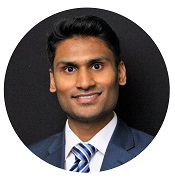Finding Your Best Fit in Cardiology
Five questions related to procedural preferences, work culture, and logistics may help you decide your optimal career path.

I recently received a casual text from a first-year cardiology fellow that read: “Should I do cath?” My immediate instinct was to reply “Yes!” I had already reached this decision myself through hours of self-reflection on my skills and future potential in the cath lab, mentorship from attendings, reading literature, writing scientific papers, and weighing the pros and cons for my career and family of being an interventional cardiologist. So, I decided blogging about this topic was a good idea.
I started my medical school certain that I would become a surgeon, but I was captivated by a cardiology elective I did in my fourth year. The pressure to decide on several career path options didn’t end for me after medical school, as ultimately I found myself on the interview trail for cardiology and not long after that pondering what I should do within cardiology. There’s noninvasive cardiology, heart failure, advanced cardiac imaging, critical care, electrophysiology, interventional cardiology, vascular medicine, and adult congenital heart disease with sub-subspecialties aplenty—the options seem endless!
For some of you, your answer becomes very obvious early: you learn your passion lies in one particular field. For others, it takes a while to develop your niche. If you’re in the former group, take the bull by the horns and go for it! If you are a member of the latter club, like me, take your time to learn about interventional cardiology. When I was an internal medicine resident at Bellevue Hospital, I was mostly influenced by working with general cardiologists who incorporated clinical trials and evidence-based medicine into practice. For those of you in similar boats, here are my five key questions you can use to discover your subspecialty of choice as you go through your first year of cardiology fellowship.
- Do you enjoy doing procedures? You will rotate through the cardiac cath lab, electrophysiology, and intensive care units and potentially do TEEs during your first year of fellowship. These are rotations where you may or may not get the chance to test yourself procedurally. Step out of your comfort zone—you are no longer putting in medicine orders for Colace or writing 20 progress notes in front of a computer screen every day. Be confident in yourself; you have made it as a cardiology fellow and should be scrubbed into these cases. Ask questions and participate in the procedures wherever feasible and safe, but be humble in what you know and what you don’t. Be ready to take feedback—both positive and negative—in your procedural skills and use it to grow.
- Who will be your mentors? Maybe you’re in a new city, a new hospital, or in a new fellowship program. You have to create the time and put forward the effort to finding professional mentors. My greatest resource and advocate during my fellowship was my program director, Donna Marchant, MD; when I expressed my interest in interventional cardiology, she helped me find my mentors. If you find yourself enjoying your cath months and seeing yourself doing it in the future, definitely tell your leadership. They will enjoy having a passionate fellow around them. Even if you are not 100% sure about your subspecialty as a first-year fellow, make known your potential interest and seek out mentorship opportunities not just in the cath lab but also in the EP lab, the imaging reading room, the vascular lab, or the CCU.
- In which stage of life are you currently and do you have a personal support system for your career path? We all have personal lives outside of fellowship that should not be ignored. Some of my co-fellows had their second or even third child in fellowship, and going through a general cardiology fellowship and being on call was tough with that added responsibility. Are you someone who is okay being on invasive call over the weekend? Is your spouse okay with you pursuing additional training? What are your job opportunities going to be after this additional year of training? What is the opportunity cost of an additional year or two of training beyond fellowship? Will you be satisfied professionally if you finished your training with general cardiology? During my first two years of fellowship I reflected on these questions, and while I felt a certain degree of anxiety, I found reassurance that there was no single right path to accomplish my professional goals. Many early-career cardiologists have pursued paths that have changed course since they finished fellowship, and that’s perfectly alright.
- Do you have a preference for an academic career or private practice? While many of our personal statements since internal medicine have indicated that we aspired to be in academia, the reality finally hits us as we enter this last stage of training. Now is the time to be honest and create a realistic assessment for yourself. Here is where mentors can help you, as there are far fewer jobs in academic cardiology. Some fellows are better suited to a career in academia. They have published, written grants, thought of spending an extra year doing research, and attended institutions known to build academic cardiologists. If you are a first-year fellow and you want to be an academic cardiologist 5 years from now, connect with mentors in your area of interest, locally, regionally, and nationally. Draft a path and know that it will require significant financial sacrifices in the short term, but if your satisfaction comes from being an educator or a researcher in academia pursue it aggressively. On the other hand, if you are realizing that private practice, or even a hybrid “private-academic” situation, is right for you, then pursue it.
- What are the application deadlines? What board exams do you have to take? As a medical student and resident, you’ve done well planning and tracking deadlines. Now that you are a fellow, you will definitely put these skills to use. For instance, the application deadline for interventional cardiology is in December of your second year. So, if your interest is interventional cardiology, start building your skills and connections early in fellowship. Some subspecialties such as heart failure, critical care, and electrophysiology don’t have applications due until in July of your third year. Some subspecialties like cardiac imaging don’t have a formalized application process, so rely on seniors and mentors to provide you with guidance. Whether you are preparing for a subspecialty application or not, you will be planning to possibly take boards in echocardiography, nuclear cardiology, vascular medicine, and of course general cardiology. Talk with your mentors and see which of these will be necessary for your career aspirations and pursue them.
In the end, take the opportunity to fully immerse yourself in each subspecialty rotation during your first year. You may find yourself liking it all or that 1 month was not enough time for you to decide on a subspecialty. Explore your options and you’ll eventually find your best fit in cardiology.
Arvind Reddy Devanabanda, MD, is a third-year cardiology fellow at Northwell Health (Manhasset, NY). Originally from Canada, he was educated…
Read Full Bio

pankaj patil